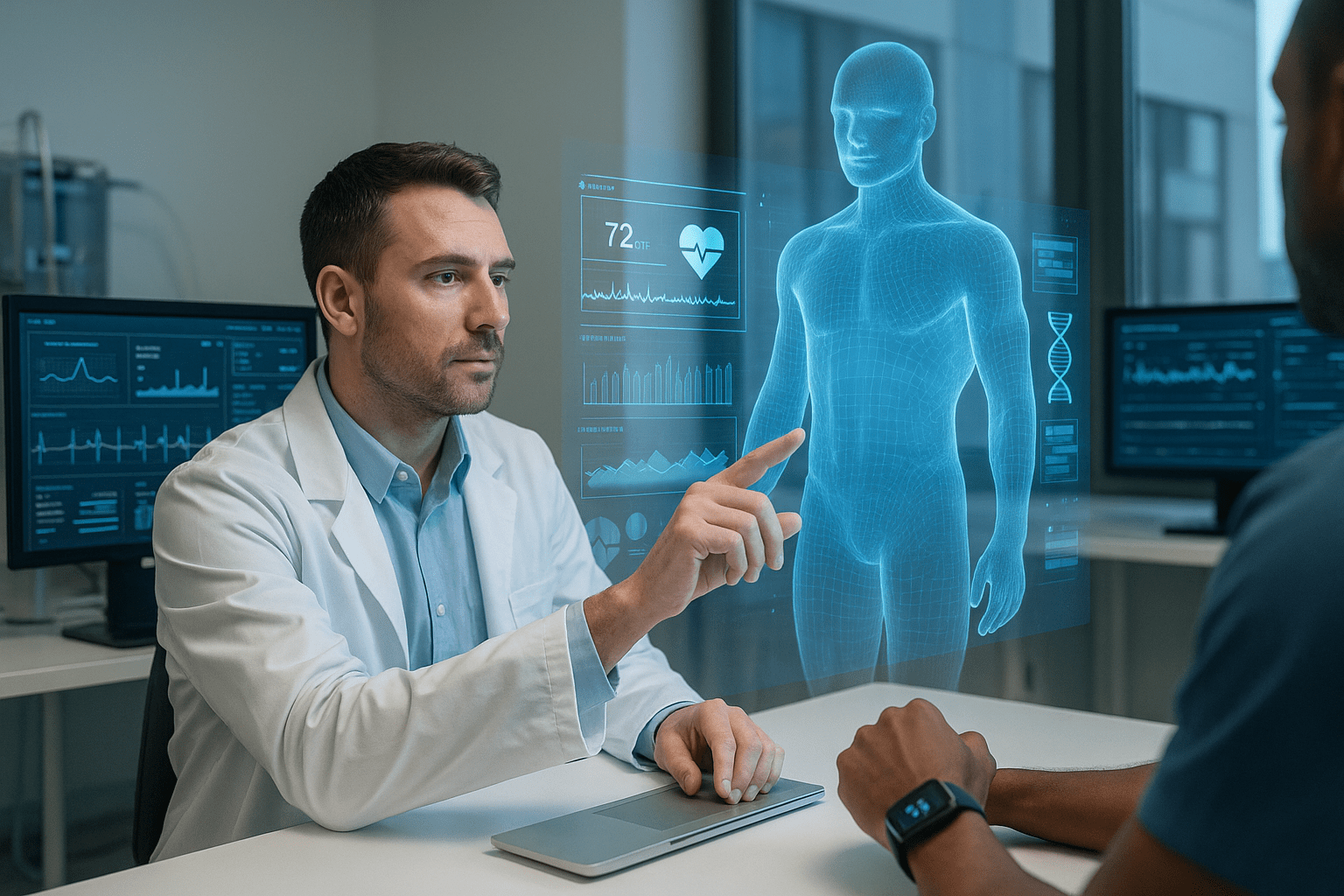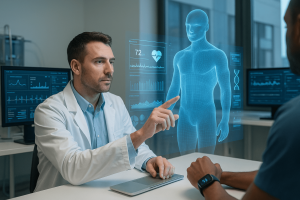How R&D is Powering the Future of Personalized Healthcare


The Rise of Personalized Healthcare
Personalized healthcare, also known as precision medicine, refers to the fitting of healthcare choices and treatments to an individual’s genetic information, health history, and personal preferences. That approach stands in stark contrast to the traditional “one-size-fits-all” medicinal model, which frequently overlooks the numerous variables which affect patient outcomes.
R&D is critical to this shift in direction. Researchers can design medications that are more successful and less likely to have negative side effects by evaluating how diseases present differently in different people and how genetic variations influence medical care response.
Genetic Research and Genomic Sequencing
Genetic research is a core component of customized healthcare. The Human Genome Project and subsequent developments in genome sequencing have opened up new avenues for research and development. Today, researchers can sequence a patient’s complete genome in hours, offering crucial data for customizing medical interventions.
Pharmaceutical and biotech businesses are making substantial expenditures in genomic research to create medications that target specific genetic abnormalities. As an example, certain cancer treatments now target abnormalities in the BRCA1 or EGFR genes, providing hope to patients who had previously had few therapeutic options.
Artificial Intelligence and Big Data in R&D
AI and big data analytics are changing healthcare research and development efforts. AI can detect patterns that the human eye cannot see by processing enormous datasets comprising genomic data, electronic records of health, lifestyle information, and even data from connected devices.
Machine learning algorithms can predict illness risk, optimize clinical trial concepts, and determine which patient demographics will benefit the most from a particular medicine. This ability to forecast shortens development processes and lowers the cost of introducing novel medicines to market.
AI is also utilized to imitate physiological responses and medication interactions. This enables researchers to test theories in silico before proceeding to clinical trials, lowering risk and accelerating innovation.
Biomarker Discovery and Targeted Therapies
Biomarkers are quantifiable proof of a medical condition or state that play a significant role in personalized treatment. Scientists have discovered biomarkers that can detect the existence or advancement in illnesses such as cancer, Alzheimer’s, and cardiovascular diseases.
Targeted medicines based on biomarkers have changed the landscape of treatment. For example, people who have HER2-positive breast cancer can now get medicines that target the HER2 receptor, substantially improving survival rates.
Ongoing research strives to develop new biological markers and evaluate their clinical utility, bridging the discovery-to-application gap and guaranteeing that promising biomarkers make it into real-world healthcare settings.
Innovations in Drug Development
Traditional drug development is an intensive and costly procedure, frequently requiring over a decade and billions of dollars to bring an innovative remedy to market. Personalized medicine, aided by R&D, is simplifying this process using adaptive trial designs and stratified populations of patients.
Adaptive clinical trials employ ongoing data to change trial parameters like dosage or patient selection. This adaptability enhances efficiency and raises the likelihood of success.
Digital twins, or virtual patient models, are being used to test the effectiveness and safety of medications prior to human trials. This not only speeds up development, but also enhances patient safety and regulatory compliance.
Patient-Centered Innovation
Personalized healthcare is concerned with both the patient experience and treatment efficacy. R&D efforts are now increasingly focused on enhancing diagnostic, monitoring, and communication systems to empower patients in their own healthcare journeys.
Healthcare is becoming more accessible and responsive as advances in technology happen. Patient feedback is increasingly being included into the R&D process, making sure that innovations meet real-world needs and expectations.
Investments in patient-centered design include usability testing and focus groups to ensure that solutions for electronic health records are simple, effective, and engaging.
Ethical and Regulatory Considerations
A single entity cannot transform healthcare on its own. Collaborations between academia, the private sector, the government, and patient advocacy organizations are critical for putting R&D breakthroughs through use in clinical settings.
Multiple points of view and pooled resources accelerate progress. A worldwide ecosystem for personalized healthcare is being developed through partnership agreements, open innovation platforms as well and strategic alliances.
Looking Ahead: The Future We Are Building
As we look to the future, the convergence of R&D and personalized healthcare promises a paradigm shift in how we understand, prevent, and treat disease. We envision a world where:
- Every patient receives treatment tailored to their biology and lifestyle
- Diseases are predicted and prevented through early detection
- AI augments human expertise to deliver better outcomes
- Healthcare systems become more efficient, responsive, and sustainable
The continued investment in research, technology, and human capital is vital to realizing this future. Transforming healthcare into a truly personalized experience for all requires ongoing innovation and commitment.
The future of healthcare is inextricably linked to the progress of research and development. As we go from a generalized to a more tailored style of care, the significance of constant innovation becomes clearer than ever. R&D is reinventing what is possible in medical science by integrating modern technologies such as genomic sequencing, computational intelligence, and digital health platforms, as well as setting new standards regarding consumer medical treatment and healthcare system efficiency.
Personalized healthcare has the potential to increase diagnostic accuracy, improve therapeutic outcomes, and lower healthcare costs by focusing interventions more accurately. It additionally encourages people to take an active role in their own health journeys, resulting in greater interactions between individuals and healthcare professionals. However, this shift introduces new challenges—ethical, technical skills, and regulatory—which must be properly addressed.
As we look ahead, the globe’s healthcare society must continue to invest in and support strong R&D ecosystems. We can only fully reap the benefits of individualized healthcare if we work together across disciplines, are transparent, and practice ethical stewardship. The opportunity of a more healthy, more equitable future is within grasp, thanks to the tireless efforts of scientists, technologists, physicians, and patients who combine to design the next chapter in medicine. By harnessing this potential, the healthcare industry can turn research into real-world impact and ensure that every individual receives care as unique as they are.